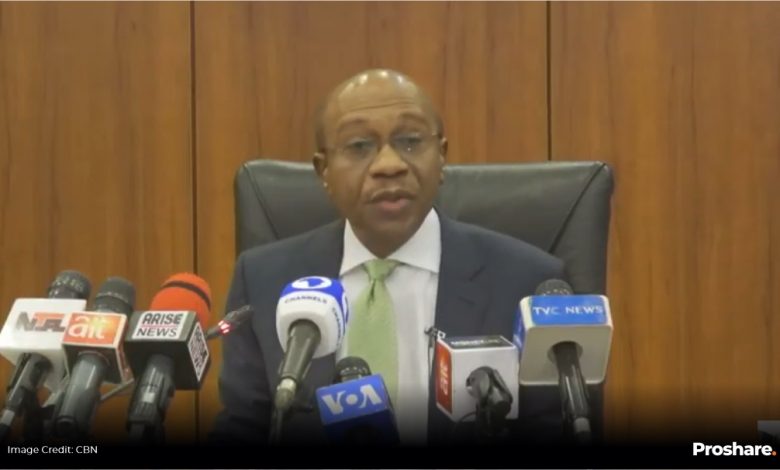Implications of Ways & Means on Nigeria’s Fiscal Position

Last week, the Senate approved the Presidency’s request to securitise the NGN22.7trn ways and means advances provided to the federal government (FG) by the CBN, putting an end to prolonged discussions that began last year. In recent years, the FG’s fiscal operations have resulted in significant fiscal deficits due to underperformance in revenue, particularly in oil revenue, compared to budgeted outcomes.
As a result, it has increasingly relied on ways and means financing from the CBN to cover the unfunded portion of the fiscal deficit. However, this has led to the W&M balance consistently surpassing the 5% threshold of the FG’s prior year’s revenue stipulated in the CBN Act.
We observe a variance of c.NGN800bn between the value of the W&M to be securitised and the NGN23.5trn provisional balance as at Dec ’23 that we see from CBN data.
According to a press release by the Debt Management Office (DMO), the securitisation will involve the issuance of debt securities with a 40-year tenor by the FG to the CBN.
The securities will have a 3-year moratorium on principal payments and carry an interest rate of 9.0%.
In terms of implications, securitising the W&M advances and adding them to the public debt balance will raise total public debt to NGN69trn or 35% of (2022) GDP from NGN46.3trn or 23% of GDP previously.
The increase in public debt may require the DMO to raise the public debt ceiling from its current level of 40%, which is contained in the medium-term debt management strategy paper, due to the proximity of the total debt to the ceiling.
Another factor supporting the need for a review of debt benchmarks in the fiscal strategy paper is that the share of domestic debt in the overall public debt split will rise to almost 73% compared with around 60% previously.
With the rising debt-service-to-revenue ratio, estimated by the World Bank at approximately 96% in 2022, a notable advantage of this move is the reduction in the FG’s debt service burden.
The bonds which are to be issued at a 9% interest rate will be advantageous compared to the prevailing interest rate of MPR + 3% on the W&M advance.
We understand that the securities will not be issued to the public. As such, the CBN will still have the debt on its balance sheet for some time. What is unclear at this time is if the CBN will be able to trade the bonds for liquidity.
Some analysts have pointed out that the Executive and the National Assembly may have acted prematurely as section 38 of the CBN Act prohibits securitisation of the W&M. Consequently, an amendment to the Act may be necessary to proceed with the securitisation.
In our view, the W&M advances have contributed to structural distortions in monetary policy by expanding the stock of monetary aggregates, contributing to inflationary pressures, and exacerbating exchange rate pressures.
An important lesson from this situation is that both the monetary and fiscal authorities must adhere to their respective guidelines and refrain from encroaching on each other’s roles.




